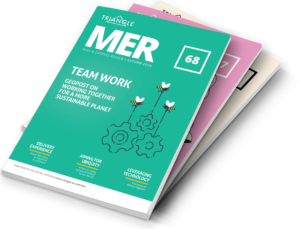
FTA urges UK government to “up the pace” on trade negotiations

With just a year to go until the UK’s departure from the European Union, the Freight Transport Association (FTA) is urging the UK government to “up the pace” on the negotiation of trading arrangements, or risk damaging integrated supply chains.
In a statement sent to Post&Parcel today (29 March), Pauline Bastidon, Head of European Policy at FTA, said: “Twelve months is a very short time in business terms and with such a focused timescale, it is unrealistic to expect logistics companies and supply chain managers to wait until the eleventh hour to learn what their new operational arrangements will be and change everything at the last minute.
“There are too many open questions, when so much is at stake, and if industry is to keep Britain trading, clarity on key areas is needed in the next three months, not 12.
“Arrangements for customs, transport or standards are still unclear, and no solutions to manage borders so that disruptions may be avoided have been agreed yet. Logistics companies and supply chain managers also need urgent clarity on what the UK’s future immigration policy will look like.
“The political confirmation of a transition period is a welcome relief to companies, but this needs to be set in stone sooner rather than later. We also need to ensure that industry is provided with sufficient details early enough to be able to adapt to new arrangements in time. A 21-month transition period is short, and we should not become complacent: urgent clarification and solutions are needed now, and not at the 11th hour, to ensure that we do not face another cliff edge in January 2021.
“Industry can adapt to many changes and new realities and logistics is, by nature, agile and resilient, but it takes time to change processes and procedures, and this requires full clarity, as no company can adapt in an adequate way to the unknown.
“Currently, logistics operates relatively seamlessly, with minimal customs checks and no need for lengthy inspections at the borders that can delay lead times significantly. Two extra minutes spent checking each truck during peak hours could result in lengthy queues of almost 30 miles on each side of the border, which could have important knock-on effects on the wider transport networks and on supply chains that often rely on just-in-time processes.”
Bastidon also argued that the access for transport needs to be confirmed urgently.
“Arrangements for aviation, road haulage and rail freight are still unclear at this stage,” said Bastidon. “We still do not know on which basis and how many trucks will be able to cross the borders. In the absence of a liberalised agreement for road transport, industry will have to rely on a very limited and constraining system of permits which would cover less than 3% of the needs, woefully under what will be required. How can business be expected to trade without transport? That needs to be uppermost in the minds of negotiators as they move on to talks about the future relationship with the EU.
“Urgent clarification is needed on the location of potential checks on goods, on practical customs issues – such as whether the UK will sign up to the Common Transit Convention and what the Customs classification system to be used on the UK side will be, the status of vital European logistics workers following Brexit and more. Integrated supply chains and close trade ties rely on these details to be able to operate effectively after Brexit.
“Whatever happens, the logistics industry is committed to ensuring that the UK can trade efficiently with its nearest neighbours, and we look to government to support the industry over the coming year in ensuring that Britain can keep trading for the future benefit and growth of the nation’s economy.”













